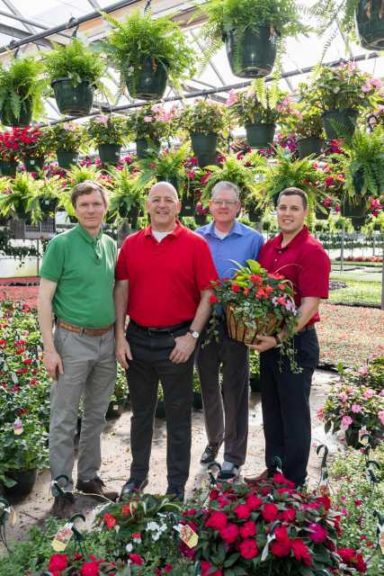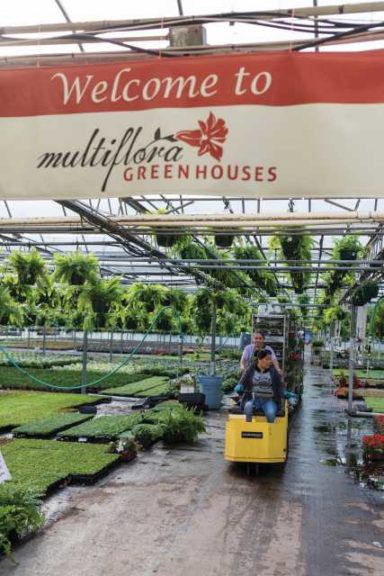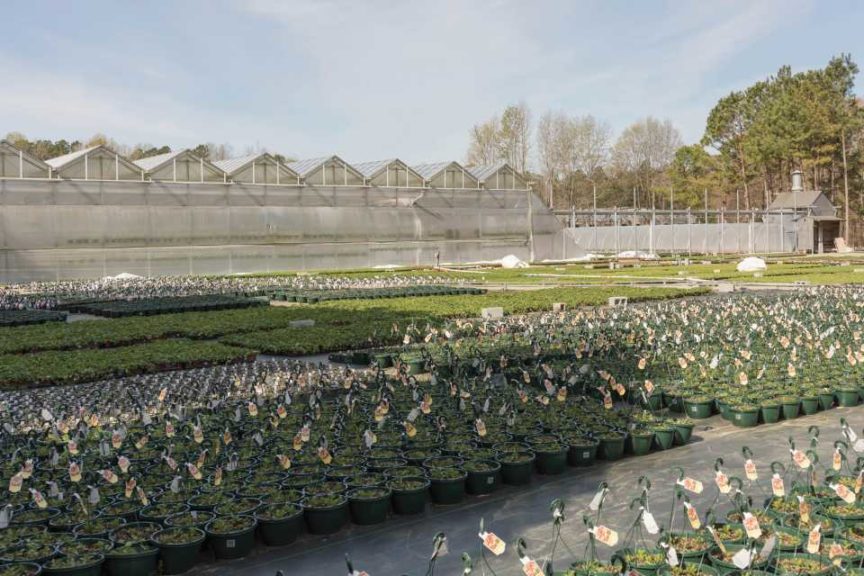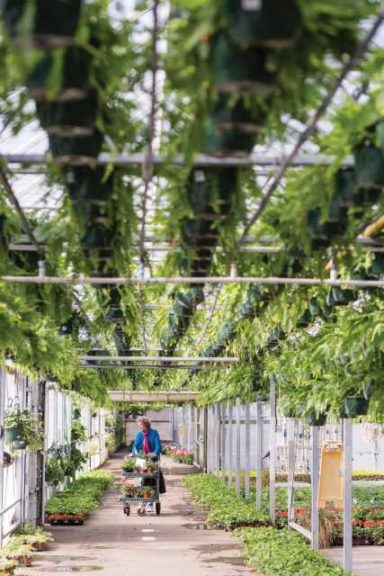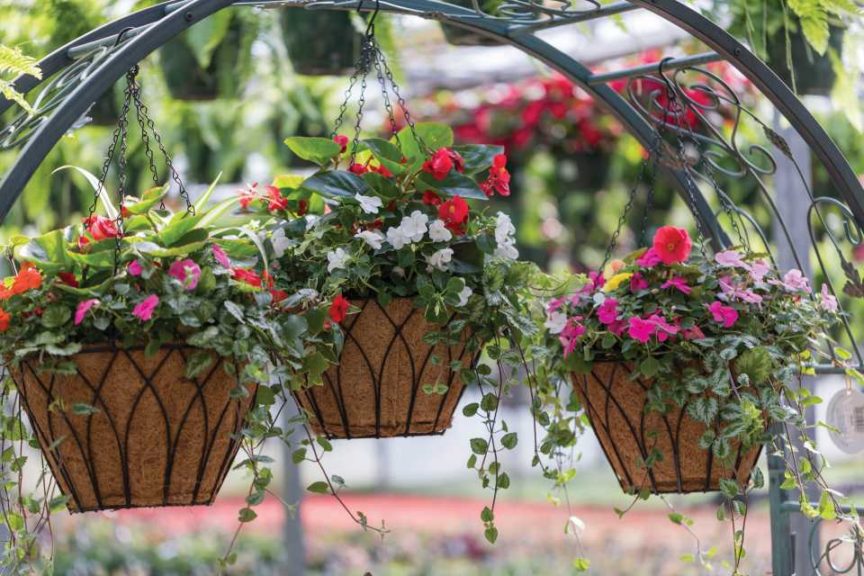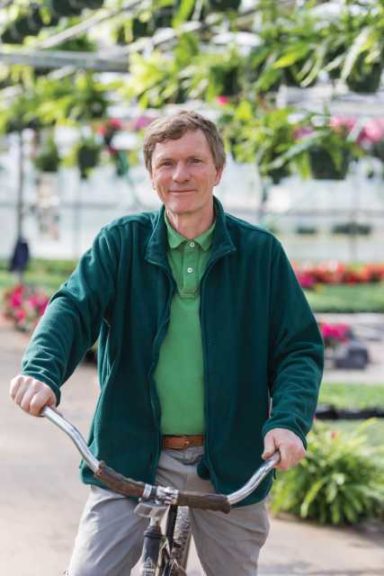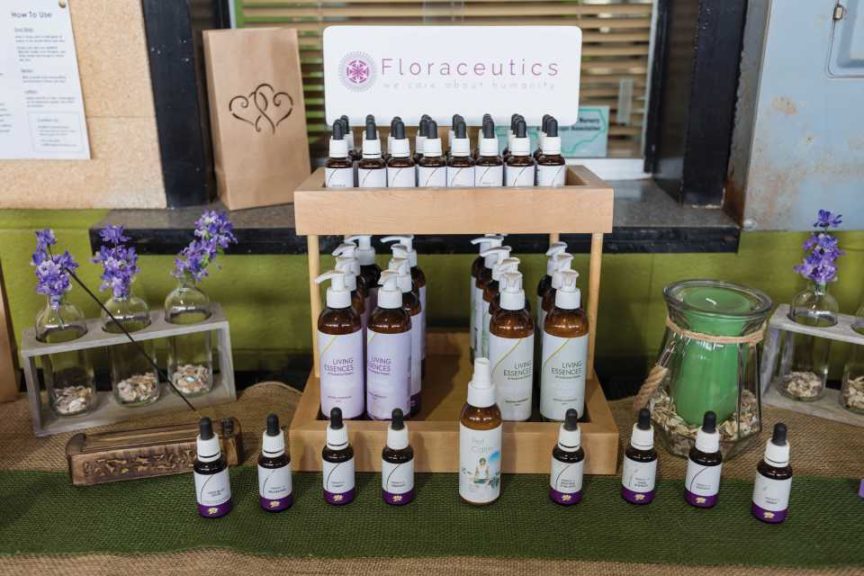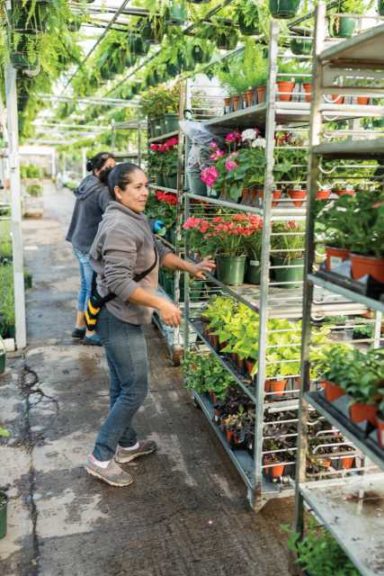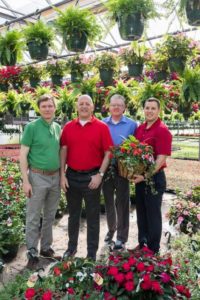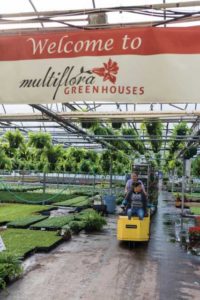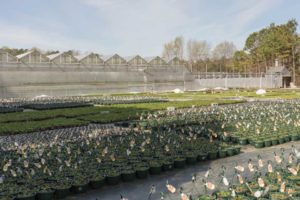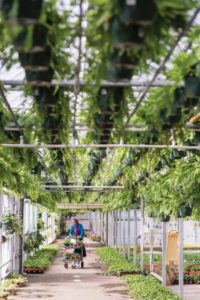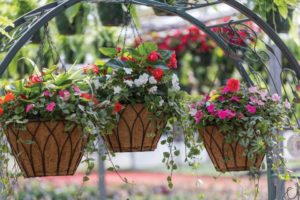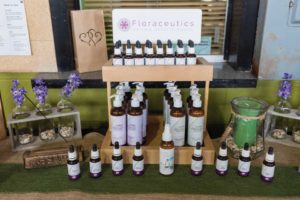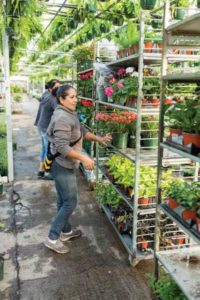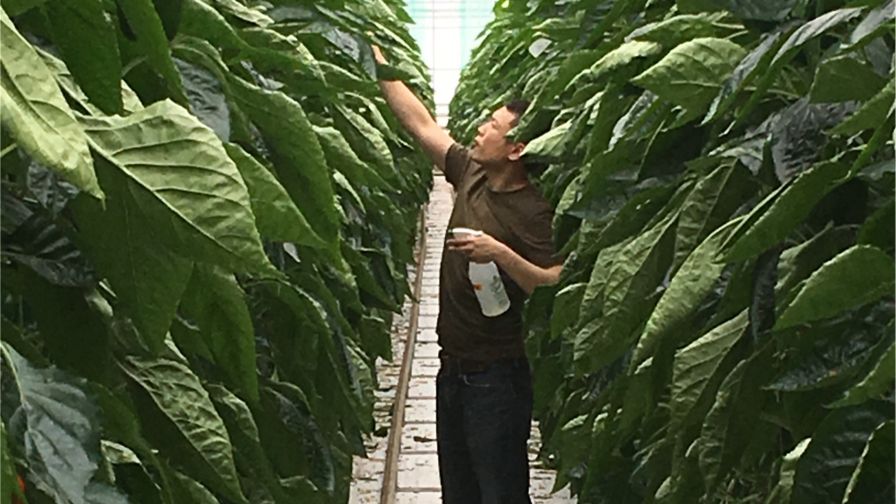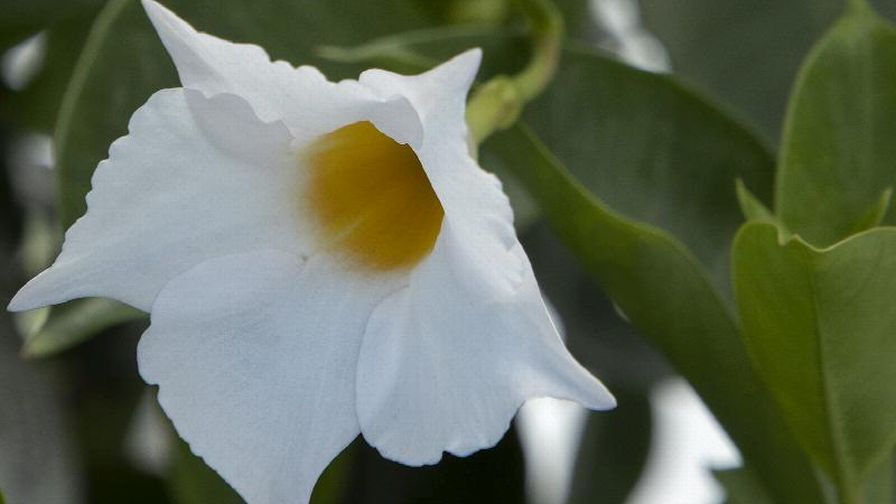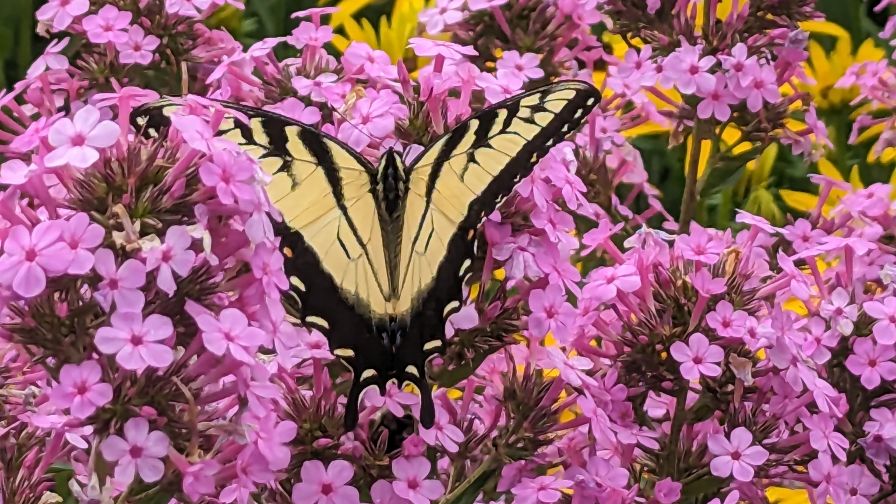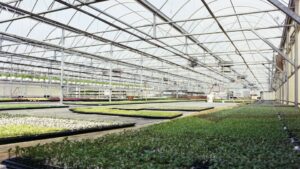Multiflora Greenhouses Is Reimagining a Greenhouse Business
Growing up in rural upstate New York, Richard Mason was well-acquainted with the dairy and vegetable farms that sprawled across the nearby lands. His parents ran a small retail business, but Mason was always drawn to agriculture. He had his first chance to learn about it when he took a course on the subject at Cornell University.
Years later in 2014, Mason — a man who spent three decades in the technology sector, managing large teams and traveling the world — finally returned to his roots.
“I always knew my calling was to have my own business and work closely with people,” Mason says.
He decided to make the jump, researching his future endeavor with specific criteria in mind: The business would need to focus on the beauty of nature, be well-respected within the industry, have a solid customer and employee base, and have a certain level of financial good standing in a strong marketplace. That’s when Mason found Multiflora Greenhouses. It was practically in his backyard in North Carolina.
“Long story short,” he says. “I visited the greenhouse and fell in love with it as soon as I walked through the door. There was something special about this business and the people who worked there.”
Multiflora Greenhouses was founded in 1983 by a family that hailed from The Netherlands. Since its inception, the company espoused the principles of growth and modernization. From its self-professed start as a “pint-sized crop being sold out of the back of a truck,” Multiflora Greenhouses became a multimillion-dollar business.
Innovation on Two Fronts Grows the Business
Head Grower and company partner Johannes “Hans” Lenselink, a 2018 Medal of Excellence winner of Greenhouse Grower’s Excellence in Process Improvement Award and a Medal of Excellence Head Grower of the Year finalist, has been with Multiflora Greenhouses for nearly 24 years now. He credits the company’s success to a decades-long commitment to innovation.
“The company always had gutter-connected greenhouses with automation and climate controls,” he says. “Now, the new ownership brings innovation with its new leadership team.”
Lenselink, who grew up in The Netherlands and studied horticulture and plant propagation at Larenstein University, was drawn to North Carolina because of its Dutch horticulture community. For a grower, this area boasted more than 200 sunny days and had an ideal plant-growing climate.
Multiflora Greenhouses has capitalized on its prime location. Consistent, double-digit population growth in the region and access to key roadways has supported the business’ expansion to new areas and customer bases.
“We are embracing the community because we have an overarching belief in people’s humanity,” Mason says. “We want to put the power back into our customers’ hands.”
In addition to organic growth, Mason has also worked to drive strategic growth. In the summer of 2017, the operation purchased Austram Inc., a lawn and garden center décor company with a 37-year legacy of success. Those in the industry will likely recognize Austram as the first to introduce the popular coconut fiber basket to the U.S. market. Multiflora Greenhouses has used this acquisition to provide its customers with exciting new combinations in high-quality planters, such as mums in 8-inch and 10-inch jack-o-lantern shaped fiber clay pots.
A New Plant Experience Attracts New Customers
This isn’t the only way Multiflora Greenhouses has created new experiences for its customers. The company also pursued a pilot program with Living Essences, an Australian company that manufactures elixirs (sprays), flower essences (lotions), and other natural-healing remedies. Today, Multiflora Greenhouses is the exclusive distributor for the company, selling what it now calls Floraceutics at the greenhouse, garden centers, and even pet stores.
“We have a Pet Calm flower elixir, and you spray it around or on your pet to calm them down,” Mason says. “People think we’re nuts, but we’re getting tremendous feedback.”
In addition to the Pet Calm, Multiflora Greenhouses sells seven other elixirs and four flower essences. Mason says the Accident Relief essence helped him when a painful foot threatened to sideline his presence at the greenhouse’s annual open house event this past spring.
Mike Jackson, Product Strategist and Brand Manager for Floraceutics, says the natural remedies fit with people’s desire to be healthy in natural ways.
“It feels transformative,” he says. “Getting up and going to work doesn’t cut it anymore. There’s a new crop of people trying to find ways to connect and feel connected. People like Floraceutics because the products align with their personal beliefs. They offer a gateway to a better life.”
The Multiflora Greenhouses team believes in the potential for these products to bring new people to the marketplace. It’s currently exploring how it will work with Living Essences in the future. Right now, the product inventory arrives pre-packaged and is stored in the greenhouses.
Both companies are committed to maintaining an ongoing relationship, but the details of how the product is shipped and where it lives may change. The goal is to efficiently meet increasing demand while maintaining the Australian company’s quality standards.
Innovation and Positive Energy Drive Organizational Change
While plant-based products and natural healing remedies are a relatively new pursuit for the greenhouse industry, Mason says he sees the partnership as a natural fit for Multiflora Greenhouses. After all, the plants like the ones grown in the greenhouses are the primary ingredients in each essence. Perhaps this insight, however, is simply the byproduct of Mason’s outsider perspective.
“We talk a lot about reinventing and revolutionizing,” he says. “Those aren’t just words; we’re making moves. It starts with an idea and a vision, but it boils down to having a team of people who can execute the vision flawlessly.”
To leverage his team’s vast collective knowledge, Mason has pushed the business to implement automation and streamline certain tasks. Soon-to-be-launched new websites with e-commerce capabilities, for example, will also benefit Multiflora’s customers.
These changes allow time for employees in key positions to focus on strategy, fostering and furthering the company’s continued growth. Because Mason’s expertise is in information technology and not greenhouse growing, he’s leaned on his employees more than most owners.
“It’s a team,” he says. “The CEO has to be the one to drive the vision and leadership, but it’s also important to surround yourself with quality people. The nucleus of our leadership team is very strong.”
Through his roles at various tech companies, Mason has learned the value of putting smart minds together. He’s using those same principles to work at Multiflora Greenhouses, and it’s enabled the company to further develop and proliferate its brands. This is merely the beginning.
“One thing that intrigues me about this business is that we grow plants that in turn drive change and transformation every season,” he says. “I am working to drive organizational change through innovation and positive energy. That’s how we will create experiences that bring people together to change the world.”




